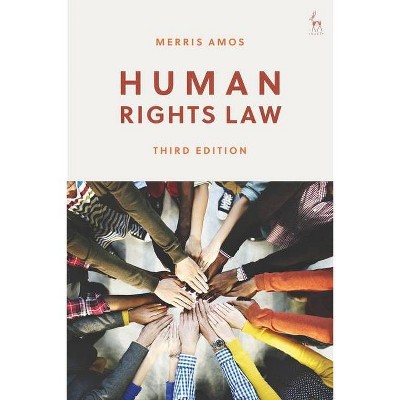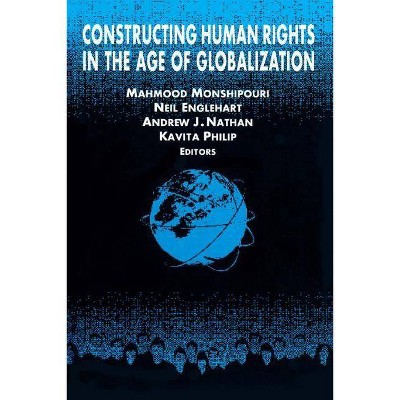Human Rights Responsibilities in the Digital Age - by Jonathan Andrew & Frédéric Bernard (Hardcover)

Similar Products
Products of same category from the store
AllProduct info
<p/><br></br><p><b> About the Book </b></p></br></br>"This book examines the tangled responsibilities of states, companies, and individuals surrounding human rights in the digital age. Digital technologies have a huge impact - for better and worse - on human lives; while they can clearly enhance some human rights, they also facilitate a wide range of violations. States are expected to implement efficient measures against powerful private companies, but, at the same time, they are drawn to technologies that extend their own control over citizens. Tech companies are increasingly asked to prevent violations committed online by their users, yet many of their business models depend on the accumulation and exploitation of users' personal data. While civil society has a crucial part to play in upholding human rights, it is also the case that individuals harm other individuals online. All three stakeholders need to ensure that technology does not provoke the disintegration of human rights. Bringing together experts from a range of disciplines, including law, international relations, and journalism, this book provides a detailed analysis of the impact of digital technologies on human rights, which will be of interest to academics, research students and professionals concerned by this issue"--<p/><br></br><p><b> Book Synopsis </b></p></br></br>This book examines the tangled responsibilities of states, companies, and individuals surrounding human rights in the digital age. Digital technologies have a huge impact - for better and worse - on human lives; while they can clearly enhance some human rights, they also facilitate a wide range of violations.<br/><br/>States are expected to implement efficient measures against powerful private companies, but, at the same time, they are drawn to technologies that extend their own control over citizens. Tech companies are increasingly asked to prevent violations committed online by their users, yet many of their business models depend on the accumulation and exploitation of users' personal data. While civil society has a crucial part to play in upholding human rights, it is also the case that individuals harm other individuals online. All three stakeholders need to ensure that technology does not provoke the disintegration of human rights.<br/><br/>Bringing together experts from a range of disciplines, including law, international relations, and journalism, this book provides a detailed analysis of the impact of digital technologies on human rights, which will be of interest to academics, research students and professionals concerned by this issue.<p/><br></br><p><b> About the Author </b></p></br></br><p><b>Jonathan Andrew </b>is Research Fellow at the Geneva Academy of International Humanitarian Law and Human Rights, Switzerland.<br><b>Frédéric Bernard </b>is Professor of Public Law at the University of Geneva, Switzerland.</p>
Price History
Price Archive shows prices from various stores, lets you see history and find the cheapest. There is no actual sale on the website. For all support, inquiry and suggestion messages communication@pricearchive.us



















